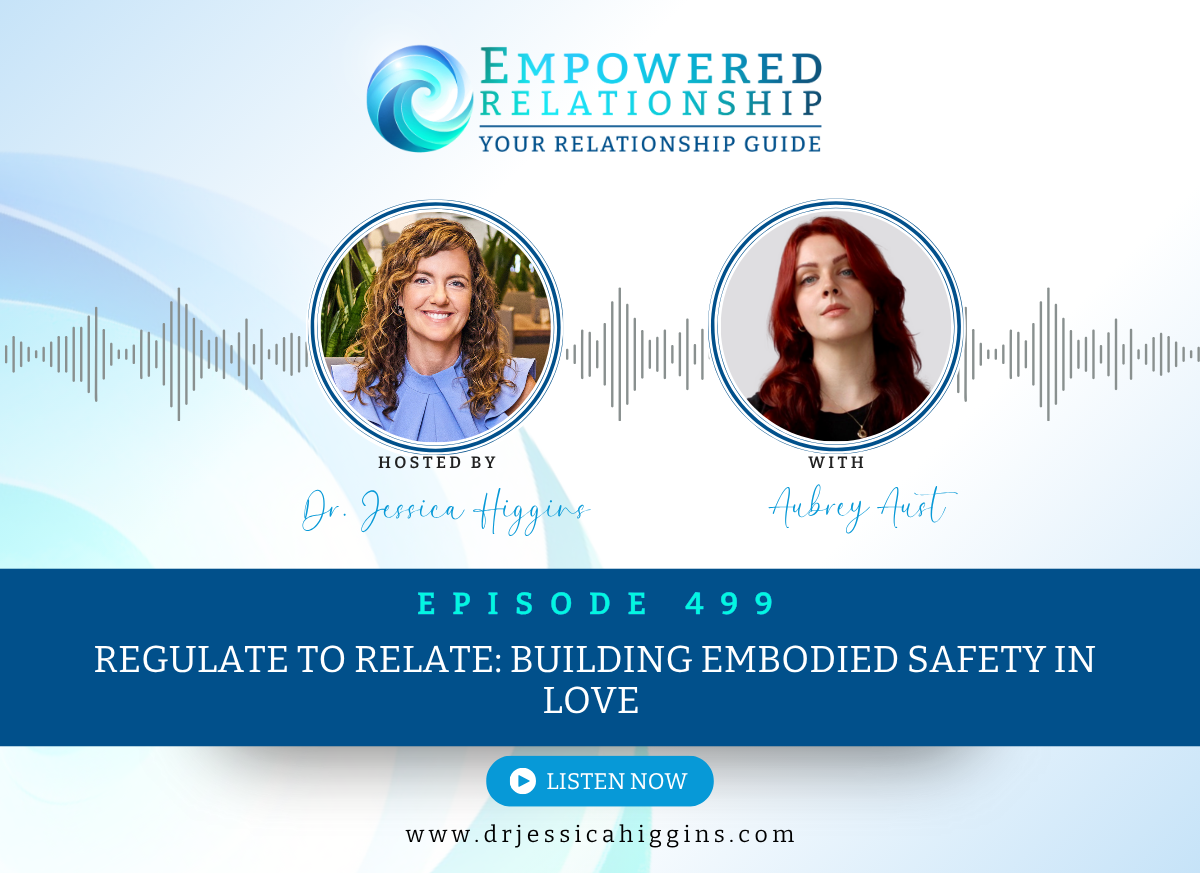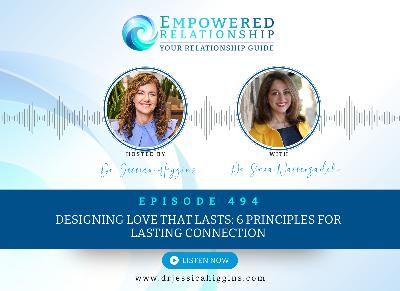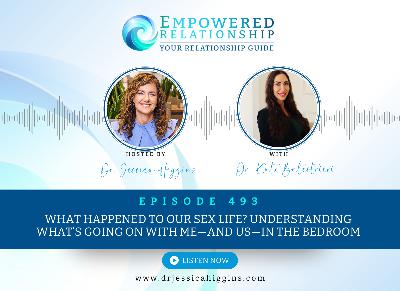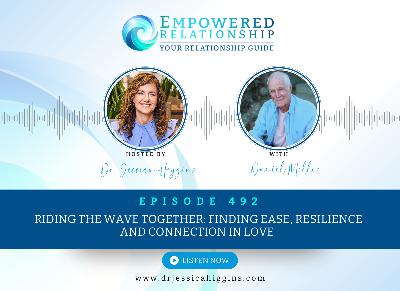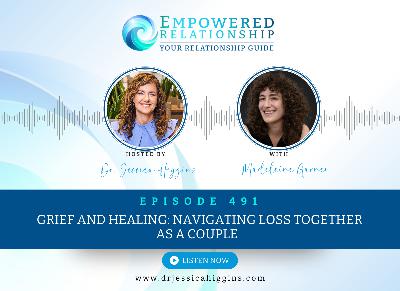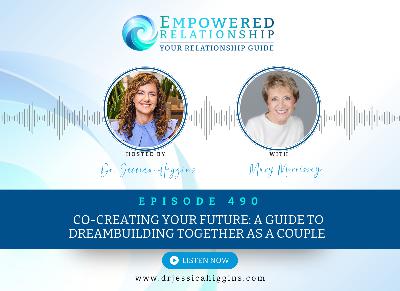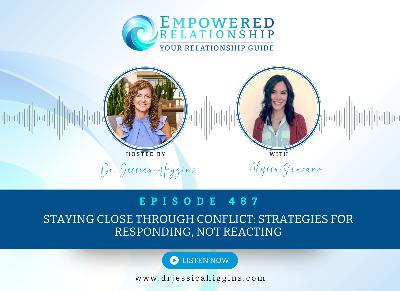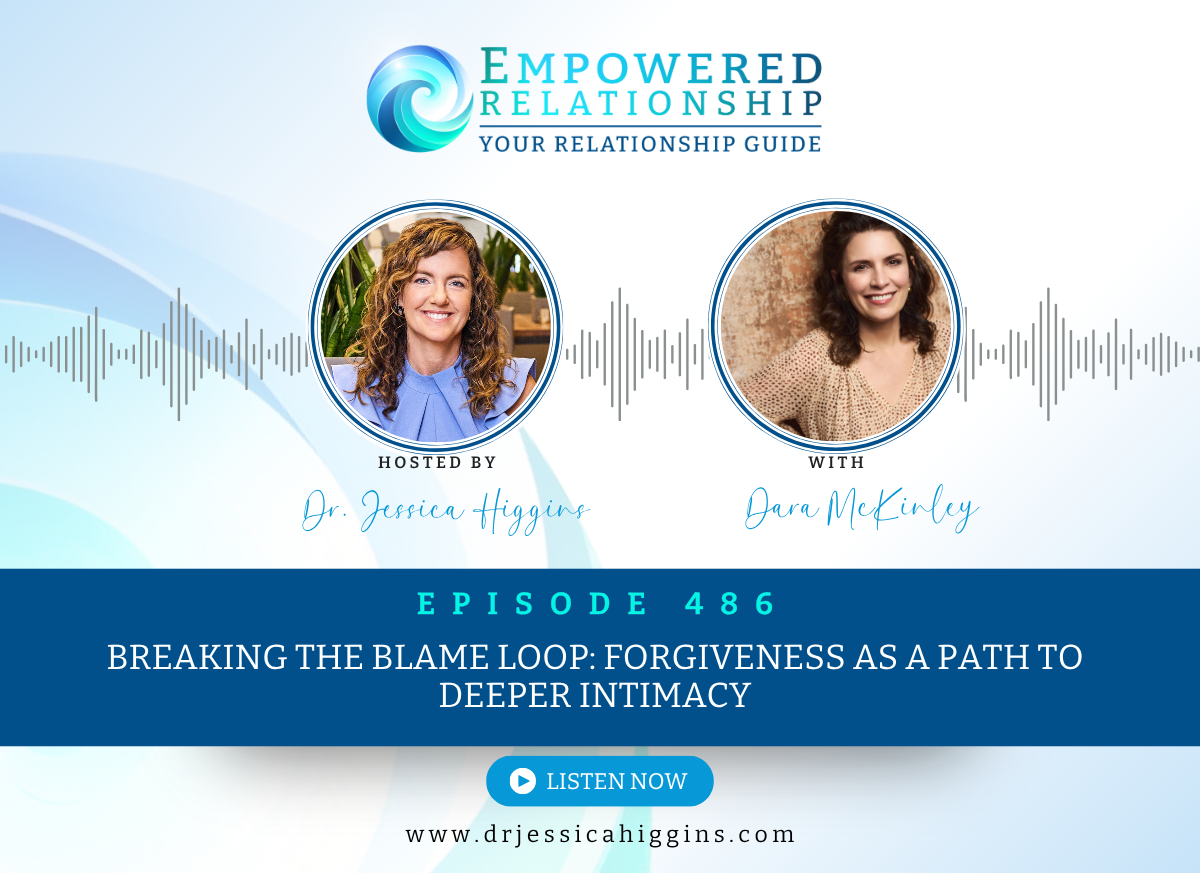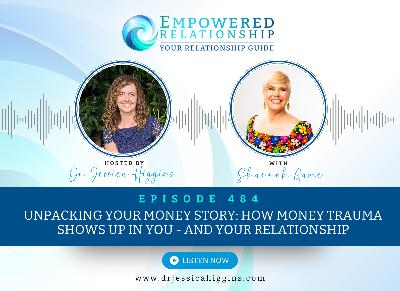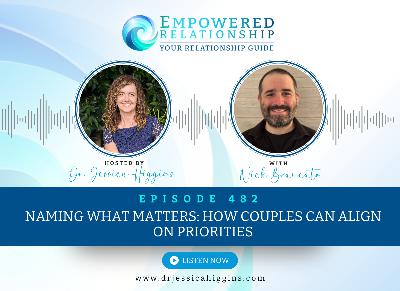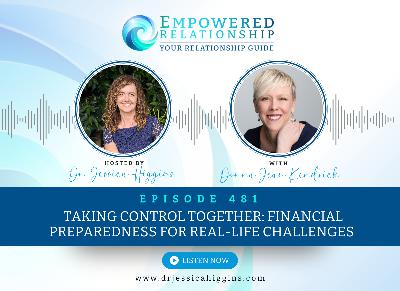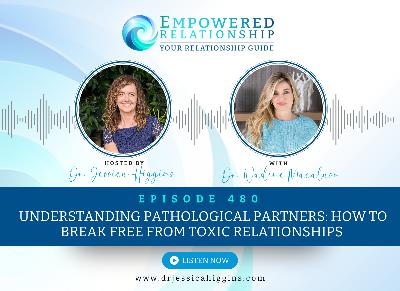ERP 499: Regulate to Relate: Building Embodied Safety in Love — An Interview with Aubrey Aust
Description
Ever feel like you know all the “right” things to do in a relationship, but when the moment comes, your body is flooded with stress, your voice tightens, or you just shut down? Many of us long for deep connection and trust, but when life gets real, our nervous system can hijack our best intentions. The invisible forces of old wounds, protective patterns, and the lightning-fast reactions of our bodies can make true safety in love feel just out of reach.
In this episode, you’ll discover practical ways to bridge the gap between knowing and feeling safe and connected with your partner. Drawing on insights from attachment and polyvagal theory, somatic psychology, and real-world relationship experiences, the conversation sheds light on what “embodied safety” truly means—and why it’s the foundation for intimacy, trust, and even passion. Listeners will come away with tools to notice their body’s cues, co-regulate with a partner, and develop relational intelligence that supports lasting, resilient love—even when challenges arise.
Aubrey Aust is a writer and master’s candidate at NYU studying relational psychology and philosophy. Her work explores how emotional safety, embodiment, and relational intelligence shape intimacy and trust. Drawing from attachment theory, polyvagal theory, and somatic psychology, Aubrey helps individuals and couples understand how to build safety in relationships through both the mind and the body. She is passionate about making complex psychological insights practical, soulful, and deeply human.
Episode Highlights
08:38 How our bodies subconsciously sense safety or danger in relationships.
10:32 The importance of nonverbal cues and body sensations in emotional communication.
16:50 Identifying and changing self-protective behaviors that block intimacy.
19:10 Accessing vulnerability for co-regulation.
21:54 How consistency shapes true relational growth.
26:32 Navigating the tension between meeting others’ needs and self-care in daily life.
28:08 How curiosity about intense emotions can help heal shame and estrangement.
32:04 How understanding core needs brings freedom and new options in relationships.
35:17 Rewiring your reactions: How noticing your nervous system transforms relationships.
38:39 How small shifts in attention can instantly calm your nervous system.
41:30 Unlocking the power to heal and evolve through relationship challenges.
Your Check List of Actions to Take
-
Take conscious pauses to slow down and deepen your breath, helping you regulate stress and become more present in relationships.
-
Practice tuning into your bodily sensations during interactions—notice tension, breath patterns, or relaxation—to better understand your felt sense of safety.
-
Build somatic awareness by gently observing your physical reactions when you feel unsafe or activated, such as tightness, speeding up, or shutting down.
-
Create check-in rituals with your partner to attune to each other’s nervous system cues, like noticing changes in body language, tone, or energy.
-
Normalize and expect moments of rupture or conflict, and view them as opportunities to build relational trust through repair and open communication.
-
Get curious about your protective patterns (such as people-pleasing, avoidance, or hyper-independence) and consider when they may no longer serve intimacy.
-
Use subtle self-regulation techniques in social situations, like grounding your feet, gently pressing your fingers together, or scanning the room to calm your nervous system.
-
When you feel dysregulated in a conversation, ask clarifying questions or take a brief pause to gather yourself instead of reacting from a place of activation.
Mentioned
It Didn't Start with You: How Inherited Family Trauma Shapes Who We Are and How to End the Cycle (*Amazon Affiliate link) (book)
Social Baseline Theory (National Library of Medicine article)
Emotionally Focused Therapy (EFT) (Psychology Today)
Polyvegal Theory (Polyvagal Institute)
Evolve in Love (program)
Evolve In Love Discovery Session with Dr. Jessica Higgins (Acuity booking link)
Connect with Aubrey Aust
Websites: aubreyaust.com
YouTube: youtube.com/channel/UCozW2k08GkMQbjs1vyN_Fkw
Instagram: www.instagram.com/aubrey__aust
LinkedIn: linkedin.com/in/aubrey-aust-8b7744174
Newsletter: aubreyaust.com/newsletter

